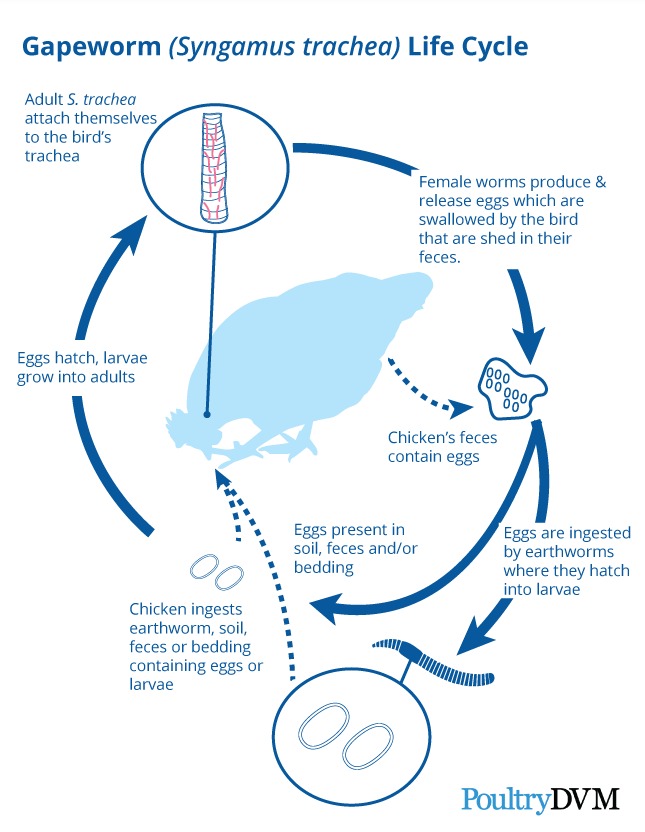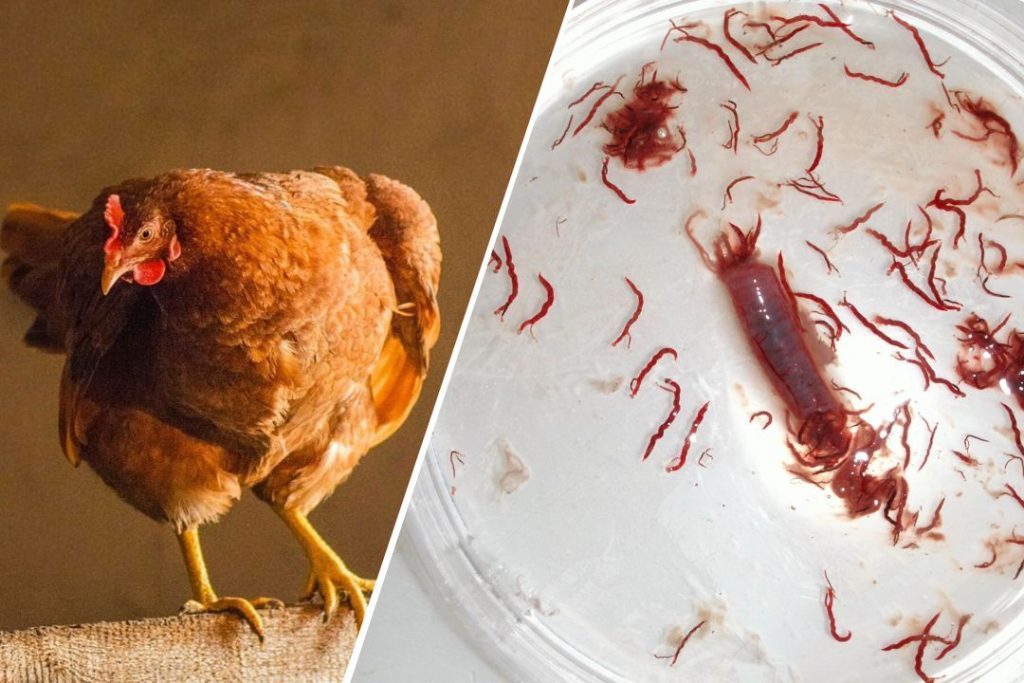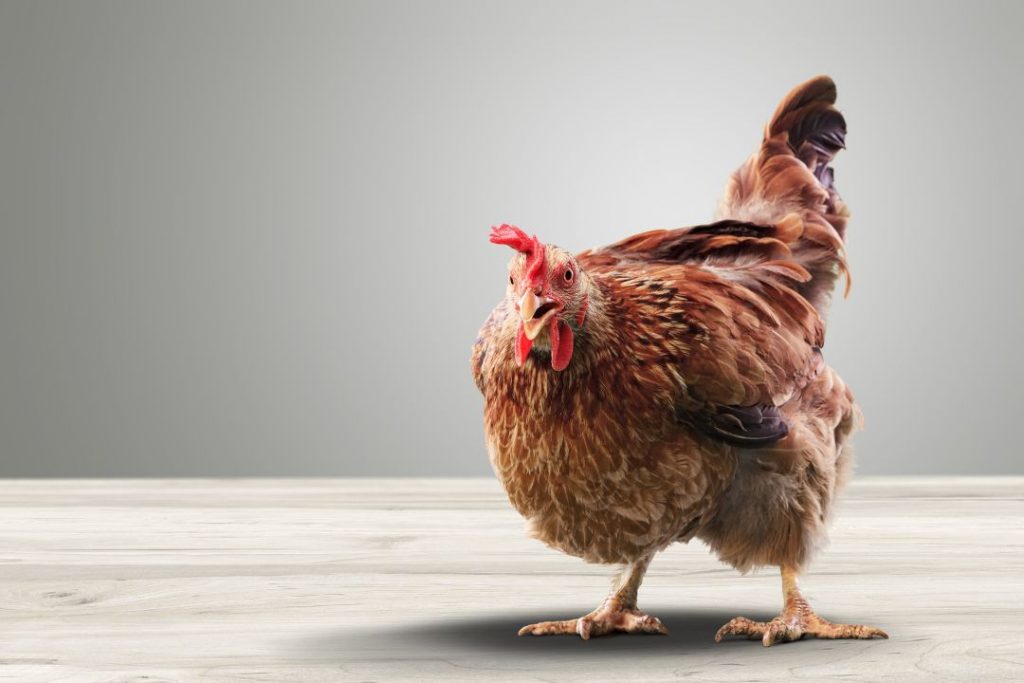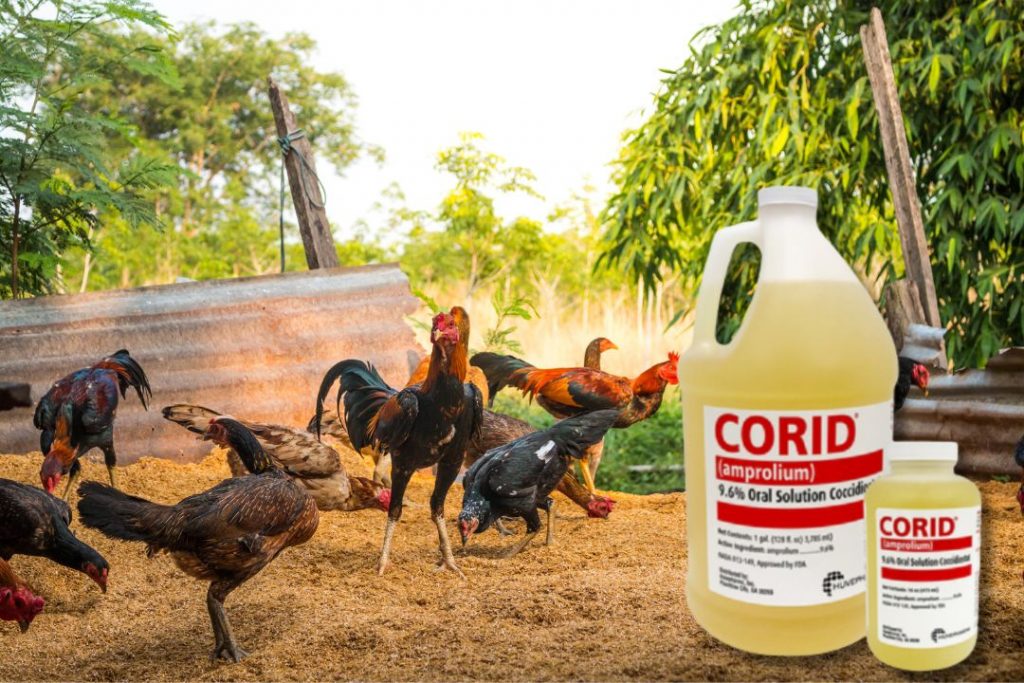Gapeworm is a parasitic nematode that is also known as Syngamus Trachea. The gapeworm is found in the trachea of wild and domestic chickens worldwide. After the infection, many flock owners ask how long does it take a gapeworm to kill a chicken?
Once the gapeworm gets in your chicken, it causes suffocation, starvation, and dehydration. Ultimately within 17-20 days, gapeworm can kill your chicken if you don’t provide treatment to them. The affected chicken’s symptoms are inflammation, respiratory distress, grunting sounds from birds, shaking the head, coughing, etc.
Following some preventive actions, you can reduce the outbreak of gapeworms. The preventatives are: frequently disinfecting the coop, Waterer, run, etc., keeping the flock separate, and quickly recognizing the illness symptoms.
Throughout this guide, we will explain all the details regarding gapeworm in chicken. So let’s dive into the main discussion:
What Is Gapeworm In Chicken?
Gapeworm is a red worm that appears forked. They are also known as the syngamus trachea. And their length is between 1 1/4 – 1 1/2 inches. Gapeworms in chickens causes inflammation, respiratory problems, and death. If the gapeworm-affected chicken is left untreated, it will die from suffocation.
Usually, five species of parasitic worms can affect your chicken. Four types of parasitic worms live in the intestinal system. On the other hand, the gapeworm is the fifth parasite worm that affects the respiratory system.
Gapeworm causes your chicken’s respiratory breathing problems by infesting the tracheal wall. In an advanced stage, it can cause a lack of oxygen. And your bird can face death.
The inside or protected birds within the coop rarely get affected by it. But the free-ranging bird outside has a greater chance of getting infected. However, gapeworms are common in chickens and other birds like turkeys, guinea fowl, etc.
Keeping different species of birds together can cause the presence and spread of gapeworm among the flock. The gapeworm follows a particular life cycle. The following image will make it clear to you:

How Do Chickens Get Gapeworms?
Your chickens can variously get gapeworm. Or there are several causes of gapeworm in chickens. Those are:
- Chicken ingests the gapeworm larvae from slugs, snails, and earthworms. Also, the contaminated water, feed, and litter can cause a gapeworm to your chicken.
- Often wild birds are the carrier of gapeworm. The larvae become shed in the feces of the wild chickens. Sometimes, wild birds drop contaminated feces into the area where you keep the chicken covered and protected. As a result, your flock also gets in touch with it.
- Once the gapeworm gets into your chickens’ trachea, it will lay eggs, reproduce and feed your bird’s blood.
- The infected chicken’s feces will infect the other birds in your flock.
- The bird that has ingested worm eggs can directly affect your chicken.
What Are The Symptoms Of Gapeworm?
Your chickens are doing well and growing healthy. But suddenly, you notice that your birds start with a funny cough. Or it’s just a quick head shake with occasional sneezing and cough. And occasionally, they also stretch the beak gaping and neck.
With all these problems, your bird can move freely, eat happily, peck at leaves, and lay eggs. Moreover, your chicken can be not sleepy, bright-eyed, with no wheezy breathing, or with no bad smell.
So sometimes, seeing their happy behavior makes it challenging to identify whether they are sick.
However, even if your chicken doesn’t act sick, you shouldn’t rule out your chicken’s respiratory infection syndromes. Otherwise, through free-ranging, your chicken will spread to other birds around them.
Anyway, the following are the significant gapeworm symptoms, seeing that you can understand whether your chicken is sick or not.
- Your chicken eats less or doesn’t eat at all
- Inflammation of the trachea
- Birds make a grunting sound
- Respiratory distress or your chicken face a hard time gasping for air or breathing
- Ulceration (sores)
- Head shaking
- Coughing
- Gapeworms block the airflow. Therefore your birds will often stretch their neck out to suffocate in the air.
How Long Does It Take A Gapeworm To Kill A Chicken?
Gapeworm is a parasite that lives in your chicken’s flesh. It causes intermittent gasping and wheezing in your chicken. Due to the gapeworm, your chicken can breathe with its mouth open, make a hissing sound, and gasps for breath.
But before seeing the gapeworm symptoms, your chicken can have ingested the larvae. Once a gapeworm affects chickens, it can take 17-20 days to kill a chicken.
Many backyard chicken keepers misunderstand and consider it as respiratory infection syndrome. Thus they give their birds antibiotics and make the mistake of overlooking the severe consequences.
The antibiotic isn’t effective in destroying gapeworms. As a result, the gapeworm gets a chance and affects your chicken badly. Ultimately the health condition of your bird starts to deteriorate continuously.
Male and female gapeworm remains embedded in the throat of a chicken. They feed off it. Then when the gapeworm lays eggs, they pass out through the cough or inside the bird. When the larvae pass outside through coughing, it reflects your flock’s chickens.
The gapeworm blocks the affected bird’s throat. Ultimately it causes stopping water, feed, and air from passing through the throat. And it causes death to your chicken.
However, the affected bird in this condition suffers for 15-20 days. And then the gapeworm kills your chickens. Suffocation, starvation, or dehydration are the leading causes of your chicken’s death from the gapeworm.
How To Treat Gapeworm In Chickens?
Gapeworms are not common. But once they are affected, your birds frequently stretch their mouths and necks open when they eat. So you need to monitor your chicken continuously to confirm whether it’s a gapeworm.
Once you confirm a gapeworm in your birds, you must take preventive action immediately. The gapeworm treatment involves calling a veterinarian. The veterinarian will more specifically prescribe the medication for your infected bird.
Once a chicken gets affected, it’s better to check up and treat your entire flock. The first treatment efficiently kills adult worms. And the subsequent treatment then eliminates the worms that have been ingested or hatched in the interim. However, the treatment time can range from 7-14 days.
Specific Treatment:
Use the powdered worming product Flubenol or Aviverm for giant chickens. Flubenol is a specialist liquid bird wormer. It is available in pet stores, vet clinics, and online.
Aviverm or Flubenol perfectly kills adult worms as it contains the chemical levamisole. The ivermectin-based product will treat all your chickens, not just the affected ones.
Ongoing Treatment:
Gapeworms can live in the soil for four years or more as it is credibly hardy. They are dangerous for your young chicken flock.
Therefore keep infecting and reinfecting your flock. Take concrete preventive measures. And quarantine all your young chickens from the adults.
How To Prevent Gapeworm In Chicken?
An ounce of prevention is more worthwhile than your trip to the veteran. There is a proverb that prevention is better than cure.
However, the prevention of gapeworm is quite tricky. Chicken, while free-ranging outside, can quickly get access to eat earthworms.
But good hygiene practices can help you enough to deal with it. The necessary prevention steps against gapeworms are:
- Frequently clean and disinfect the feeders, coop, run, and Waterer. Ensure proper housing and bedding sanitation and reduce the gapeworm’s breaking change.
- If your birds get access to digging from any place, dispose of that bedding or shavings.
- Quickly recognize the respiratory illness VS gapeworm symptoms in your chicken. Avoid wasting time treating and diagnosing your sick bird.
- Keep your chicken separately by age grouping.
Many flock owners ask if they should stop feeding earthworms to their chickens. The answer is no. The earthworm’s nutritional value is high, and the gapeworm is not that common. So depriving your chicken of earthworms or worm treats is not a good decision.
Frequently Asked Questions
How Long Does It Take To Get Rid of the Gapeworm?
Depending on the dewormer, the treatment length can be between 7-14 days.
Can Humans Get Gapeworms From Chickens?
It’s rare that from a chicken, the human gets a gapeworm. But from the affected chicken, the gapeworm can quickly spread into the other birds within the flock.
Can A Chicken Recover From A Worm?
Yes! The affected chicken can recover from the worm. There is a wide variety of natural and artificial treatments that help your chicken to recover.
Wrap up
Optimistically after going through the above, now you know how long it takes a gapeworm to kill a chicken. Your chicken can face death within 17-20 days of the gapeworm attack. It’s been a long time. If you can provide treatment to your birds, they can get well within this time.
However, if you have any further queries regarding this issue, let us know by commenting. Soon we will reply to you.



